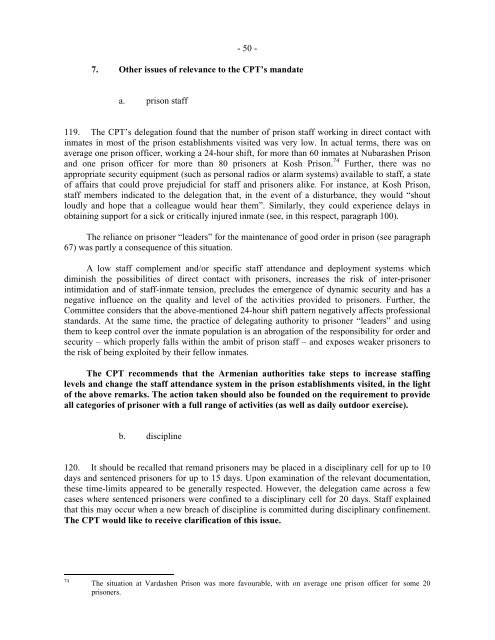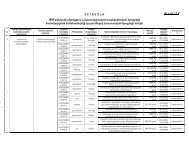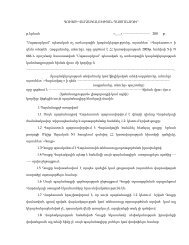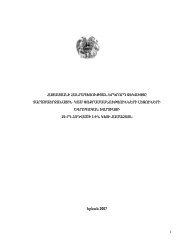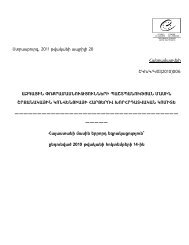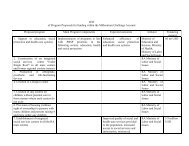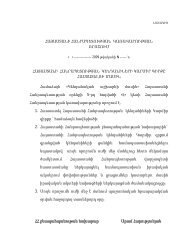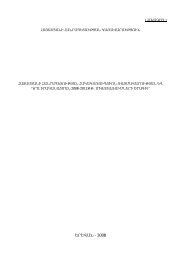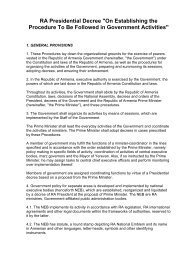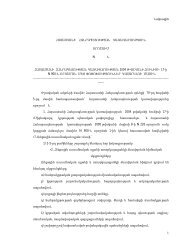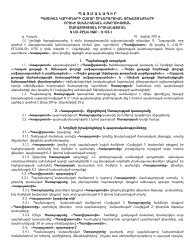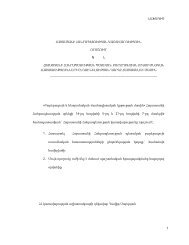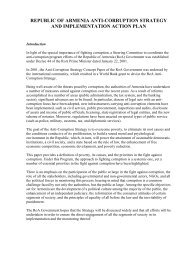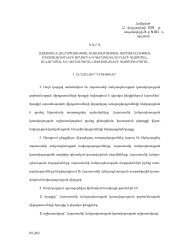CPT _2010_ 82 - EN - Report Armenia 2010 _2_ - The Government ...
CPT _2010_ 82 - EN - Report Armenia 2010 _2_ - The Government ...
CPT _2010_ 82 - EN - Report Armenia 2010 _2_ - The Government ...
You also want an ePaper? Increase the reach of your titles
YUMPU automatically turns print PDFs into web optimized ePapers that Google loves.
- 50 -7. Other issues of relevance to the <strong>CPT</strong>’s mandatea. prison staff119. <strong>The</strong> <strong>CPT</strong>’s delegation found that the number of prison staff working in direct contact withinmates in most of the prison establishments visited was very low. In actual terms, there was onaverage one prison officer, working a 24-hour shift, for more than 60 inmates at Nubarashen Prisonand one prison officer for more than 80 prisoners at Kosh Prison. 74 Further, there was noappropriate security equipment (such as personal radios or alarm systems) available to staff, a stateof affairs that could prove prejudicial for staff and prisoners alike. For instance, at Kosh Prison,staff members indicated to the delegation that, in the event of a disturbance, they would “shoutloudly and hope that a colleague would hear them”. Similarly, they could experience delays inobtaining support for a sick or critically injured inmate (see, in this respect, paragraph 100).<strong>The</strong> reliance on prisoner “leaders” for the maintenance of good order in prison (see paragraph67) was partly a consequence of this situation.A low staff complement and/or specific staff attendance and deployment systems whichdiminish the possibilities of direct contact with prisoners, increases the risk of inter-prisonerintimidation and of staff-inmate tension, precludes the emergence of dynamic security and has anegative influence on the quality and level of the activities provided to prisoners. Further, theCommittee considers that the above-mentioned 24-hour shift pattern negatively affects professionalstandards. At the same time, the practice of delegating authority to prisoner “leaders” and usingthem to keep control over the inmate population is an abrogation of the responsibility for order andsecurity – which properly falls within the ambit of prison staff – and exposes weaker prisoners tothe risk of being exploited by their fellow inmates.<strong>The</strong> <strong>CPT</strong> recommends that the <strong>Armenia</strong>n authorities take steps to increase staffinglevels and change the staff attendance system in the prison establishments visited, in the lightof the above remarks. <strong>The</strong> action taken should also be founded on the requirement to provideall categories of prisoner with a full range of activities (as well as daily outdoor exercise).b. discipline120. It should be recalled that remand prisoners may be placed in a disciplinary cell for up to 10days and sentenced prisoners for up to 15 days. Upon examination of the relevant documentation,these time-limits appeared to be generally respected. However, the delegation came across a fewcases where sentenced prisoners were confined to a disciplinary cell for 20 days. Staff explainedthat this may occur when a new breach of discipline is committed during disciplinary confinement.<strong>The</strong> <strong>CPT</strong> would like to receive clarification of this issue.74<strong>The</strong> situation at Vardashen Prison was more favourable, with on average one prison officer for some 20prisoners.


